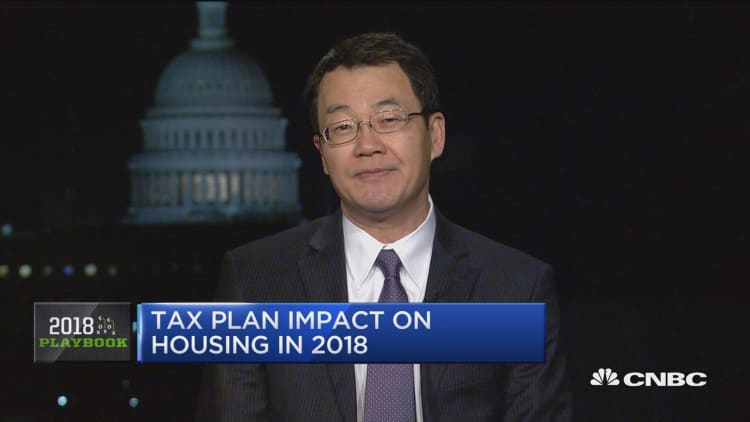
Residents in New York, California and other high-tax states on the coasts could see the home values decline as knock-on effects of the GOP changes in property taxes begin to take hold next year, the National Association of Realtors' chief economist said Thursday.
"We expect some price declines in California, in New Jersey, in New York, Connecticut ... in the 5 percent range," NAR's Lawrence Yun predicted during an interview on CNBC's "Squawk Box."
Yun said that two changes in the new GOP law surrounding the treatment of real estate taxes may cause buyers of expensive homes in states with higher taxes to become more cautious.
The first change affects people applying for a new mortgage. Under the new law, they will be able to deduct interest on home loans only up to $750,000. That's down from the current threshold of $1 million. Existing mortgage holders won't see any change.
The second change has to do with the $10,000 deduction cap on state and local taxes, including property taxes. The IRS said people may be able to deduct their 2018 property taxes only if they were assessed and paid during 2017. Prepaying based on estimated assessments won't be allowed.
While wealthier residents of high-tax states may be scambling, most of the country won't be affected, said Yun. "Ninety-five percent of homeowners and homebuyers are not impacted by mortgage interest deduction limit of $750,000 or the property tax deduction of $10,000."
But one thing that could impact everyone in the real estate market is the possibility of higher mortgage rates, Yun said. "Mortgage rates could rise because we are seeing larger deficits over the horizon" due to the tax law, he said. Bigger deficits can lead to more inflation, which could put the Federal Reserve on a more aggressive interest rate hike path.
The Fed increased rates earlier this month, in the third such move this year. After the December meeting, central bankers projected three more rate hikes next year.


